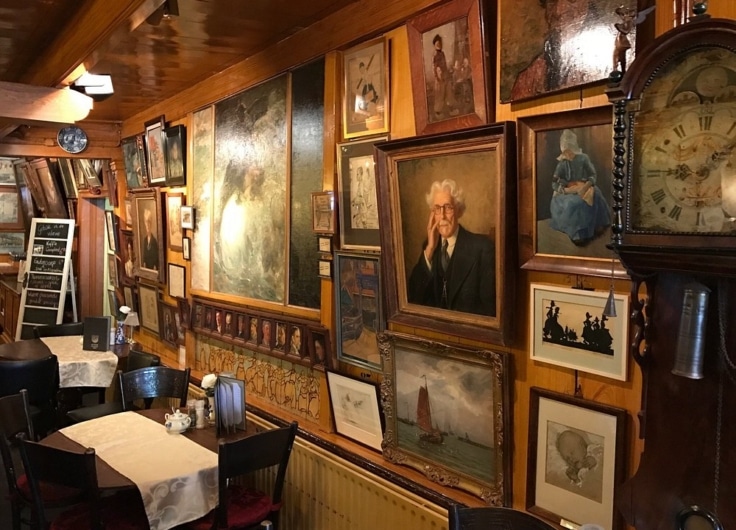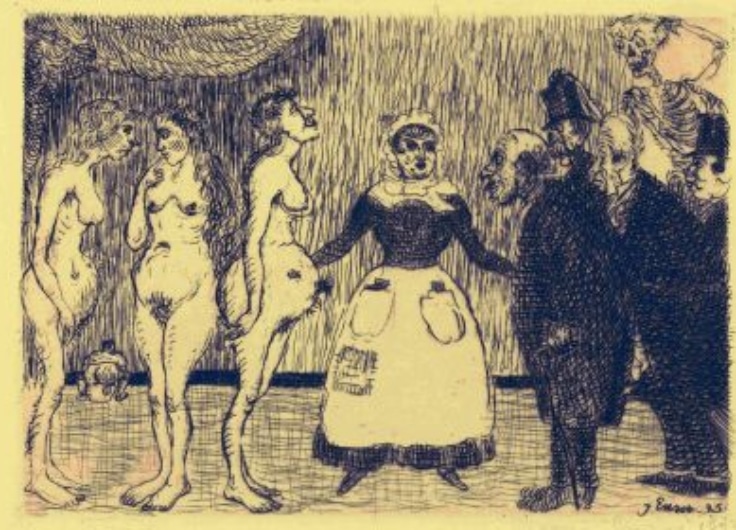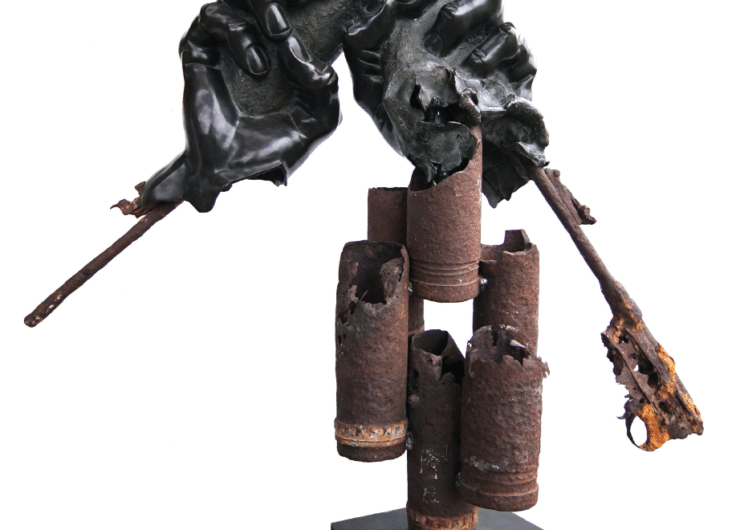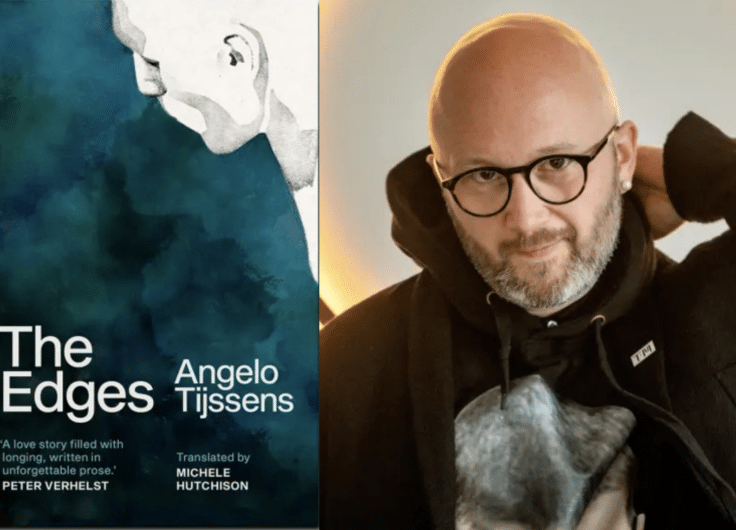‘De daden’ by Anne Schepers: On Engagement and Cynical Journalism
In De daden (Deeds), Anne Schepers tells the story of an intern at a leading newspaper, who gradually finds herself caught between her activist inclinations, her cynical bosses, and the poor neighbourhood in which she grew up.
Young Sara is determined to make it as a journalist. She considers the profession to be a noble one, wants to shed light on matters, denounce injustice, and make the world just a tiny bit of a better place with her research and her writing. Her idealism is old-fashioned, in other words, journalism, as it was once intended.
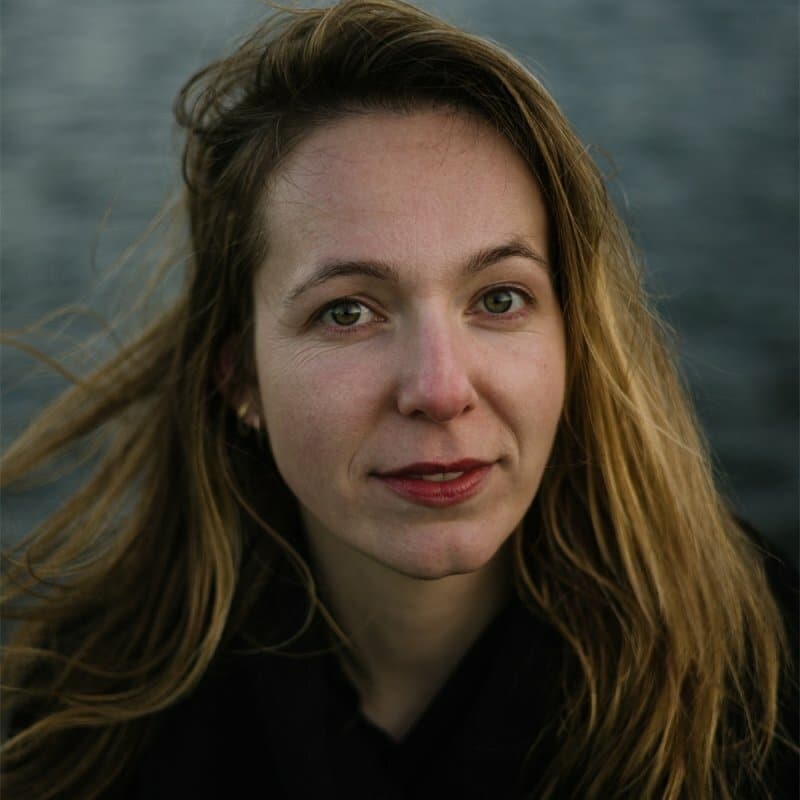 Anne Schepers
Anne Schepers© Stijn de Vries
Sara becomes a trainee researcher on the editorial board of a Rotterdam newspaper. Her pay does not even cover the rent of her student accommodation, so she moves back in with her mother in De Beverwaard, a relatively new working-class neighbourhood in South Rotterdam, near De Kuip, the stadium of Feyenoord football club. De Beverwaard has a reputation as a problem neighbourhood. One of her brothers, Kyran, lives nearby; another brother, Daaf, seems to have vanished from the picture.
Sara is trying to concentrate on the investigative work she is doing for the paper, on the migration route people are taking to Europe from the Far and Middle East via Lesbos. In this, she is guided by mentor Joost and editor-in-chief Bruno. The assignment is arduous. Not only is the material difficult, with Sara herself having to speak to refugees keen to talk about their journey, but she is not always on the same page as Bruno, who wants always to go to press as quickly as possible. The fact that Sara, to put it mildly, does not have much of an instinct for newsworthy copy does not work in her favour, of course.
Moreover, at the same time as working on this assignment, Sara is dealing with a multitude of domestic troubles, needs and concerns. Kyran loses his job, her mother’s benefits are cut since her daughter is back living at home, and former drug addict Daaf resurfaces. A family rift ensues. While Kyran is suspicious of his brother’s good intentions, Sara and her mother are happy to give Daaf a second, third, and even a fourth chance.
Schepers’ descriptions of journalistic discussions are accurate and sometimes amusing
Sara, who was the first in her family to go to university and wanted to escape her roots, is sucked back fully into the past, confronted with the everyday troubles of people growing up in poverty. At the same time, she becomes increasingly disillusioned with journalism. Her idealism seems to be taken in a bad light, she is accused of activism, of not being objective enough, of being too close to her subject. When she is relegated to the newsroom three days a week, where she has to type up bulletins for the website, this does not go down well.
Anne Schepers has a background in journalism. She did an internship at Vrij Nederland magazine and worked for Dutch TV before switching to De Correspondent where she could finally work on the in-depth stories she had in mind. Her descriptions of journalistic discussions are accurate and sometimes amusing. The friction between those in favour of a more engaged form of journalism and mere news hunters is apt, and editor-in-chief Bruno comes off poorly as an alpha male.
That Schepers, who studied political science and political behaviour, graduated on the topic of political cynicism clearly shines through in this debut. Although, in this novel, the cynicism is limited mostly to journalism, not the political sphere.

And even though De daden gets off to a slightly slow start, Schepers’ beautifully describes Sara’s struggle, particularly when a centre for asylum seekers is being planned in De Beverwaard. The idealist in Sara wants to stand up for the poor and the wretched who have fled war, but at the same time she understands the harsh reality of the neighbourhood and empathises with the problems faced by the people she grew up with. Sara wants to understand everyone, and do right by everyone, it is in her nature. And that means she sometimes clashes with her surroundings, but also with herself.
The final chapters are the strongest and give voice to the voiceless, both those from De Beverwaard and those on Lesbos. The book picks up pace here, and the compassion and understanding for those seeking asylum and residents balances out the whole. The epilogue is particularly powerful and has a dreamy feel, leaving more to the imagination than elsewhere in the book. De daden has a brilliant ending and is a promising debut.
Excerpt of ‘De daden’, translated by Elisabeth Salverda
I cycled to town like mad, the wind pounding in my ears. My legs were sore, I was panting, my lungs were tight. I didn’t care what Joost said, I didn’t care what Kyran said. Tonight I would speak to those refugees in Daaf’s building, they had to be there, and I would speak to Daaf. He would already have left Dewsin’s. I had nothing to say to him, I just wanted to remember the feeling, of how it used to be when we stood up to my mother and Kyran, when it was still us together against them instead of me on my own.
Getting into trouble did not interest me. That was precisely the point. Only by running the risk could you experience things otherwise you were kept out of everything. How dare they. The wind blew tears out of the corners of my eyes left and right. But I did not cry, I cycled like mad and when I was over the bridge, the wind from behind the White House bellowed so hard that I was almost blown backwards. Keep hanging on. Keep pedalling. Somewhere, in another world, cars honked as I crossed the road. Pushing Daaf face-first into a tub of cold water. Screaming for him to wake up. Screaming that he should never have left. Screaming that I wanted to leave too.
In the street near the school, it was quiet. The curtains of the low houses were drawn, blue light streamed from cracks. Refugees in their street, refugees who had been forced across the continent in search of safety and stability, and on their televisions, people watched a Chinese man singing along to songs with headphones on, unintelligibly, and when the white people behind the tables guessed what he was singing everyone laughed.
There were no lights on in the school building. Maybe the migrants were in the basement, waiting for people to go to sleep, or maybe I was too late and they were already on their way to Hook of Holland. The yellow catkins of the hazel trees had been pulverised, there were footprints in the thick sludge covering the tiles. Leaves rustled under my feet as I shuffled closer to the piece of chipboard at the school entrance. From here, it looked like the chain lock was gone. I called Daaf. His phone rang, but I already knew he wouldn’t answer. Maybe he had already sold it. I shuffled backwards and looked up at the tall windows above me, the panes mostly broken and filled with cardboard and more chipboard. There was nothing to see.
I looked around, thankfully there was no one out on the street. In the light of my screen, I saw the gleam of a sticker stuck over the doorframe and wood panel. I switched on the torch to see it better. The sticker was dark blue: THIS PROPERTY HAS BEEN SEALED BY THE POLICE. Gently I pressed my fingers against the chipboard. It didn’t give way. I walked round to the side. The entrance to the garden had been cordoned off with police tape, and that same sticker. THIS PROPERTY HAS BEEN SEALED BY THE POLICE.
I sat down with my back against the gate and lit a cigarette. The migrants were gone. Daaf was gone. Where he was – I didn’t know. It began to drizzle; a cold wind drew down my neck. I got up, the street was dead, and in the distance a man was walking his dog. There were nine cigarettes in my pack. An image of Daaf with a blanket on a piece of cardboard in a half-open garage flashed before my eyes. I tapped the ash off my cigarette and started walking into town, looking for my brother.
Anne Schepers, De daden, Lebowski, Amsterdam, 2023, 256 pages


